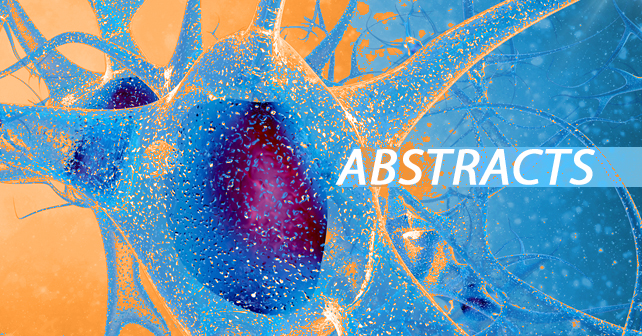Mutated isocitrate dehydrogenase 1 (IDH1) defines a molecularly distinct subtype of diffuse glioma1-3. The most common IDH1 mutation in gliomas affects codon 132 and encodes IDH1(R132H), which harbours a shared clonal neoepitope that is presented on major histocompatibility complex (MHC) class II4,5. An IDH1(R132H)-specific peptide vaccine (IDH1-vac) induces specific therapeutic T helper cell responses that are effective against IDH1(R132H)+ tumours in syngeneic MHC-humanized mice4,6-8. Here we describe a multicentre, single-arm, open-label, first-in-humans phase I trial that we carried out in 33 patients with newly diagnosed World Health Organization grade 3 and 4 IDH1(R132H)+ astrocytomas (Neurooncology Working Group of the German Cancer Society trial 16 (NOA16), ClinicalTrials.gov identifier NCT02454634).
Nature 2021 Apr;592(7854):463-468. doi: 10.1038/s41586-021-03363-z. Epub 2021 Mar 24.
A vaccine targeting mutant IDH1 in newly diagnosed glioma
Michael Platten 1 2 3, Lukas Bunse 4 5, Antje Wick 6 7, Theresa Bunse 4 5, Lucian Le Cornet 8, Inga Harting 9, Felix Sahm 10 11, Khwab Sanghvi 4, Chin Leng Tan 4, Isabel Poschke 4 12, Edward Green 4, Sune Justesen 13, Geoffrey A Behrens 14, Michael O Breckwoldt 9, Angelika Freitag 8, Lisa-Marie Rother 8, Anita Schmitt 15, Oliver Schnell 16, Jörg Hense 17, Martin Misch 18, Dietmar Krex 19, Stefan Stevanovic 20, Ghazaleh Tabatabai 21, Joachim P Steinbach 22, Martin Bendszus 9, Andreas von Deimling 10 11, Michael Schmitt 15, Wolfgang Wick 6 7 23Affiliations expand
- PMID: 33762734
- PMCID: PMC8046668
- DOI: 10.1038/s41586-021-03363-z
Free PMC article
Abstract
Mutated isocitrate dehydrogenase 1 (IDH1) defines a molecularly distinct subtype of diffuse glioma1-3. The most common IDH1 mutation in gliomas affects codon 132 and encodes IDH1(R132H), which harbours a shared clonal neoepitope that is presented on major histocompatibility complex (MHC) class II4,5. An IDH1(R132H)-specific peptide vaccine (IDH1-vac) induces specific therapeutic T helper cell responses that are effective against IDH1(R132H)+ tumours in syngeneic MHC-humanized mice4,6-8. Here we describe a multicentre, single-arm, open-label, first-in-humans phase I trial that we carried out in 33 patients with newly diagnosed World Health Organization grade 3 and 4 IDH1(R132H)+ astrocytomas (Neurooncology Working Group of the German Cancer Society trial 16 (NOA16), ClinicalTrials.gov identifier NCT02454634). The trial met its primary safety endpoint, with vaccine-related adverse events restricted to grade 1. Vaccine-induced immune responses were observed in 93.3% of patients across multiple MHC alleles. Three-year progression-free and death-free rates were 0.63 and 0.84, respectively. Patients with immune responses showed a two-year progression-free rate of 0.82. Two patients without an immune response showed tumour progression within two years of first diagnosis. A mutation-specificity score that incorporates the duration and level of vaccine-induced IDH1(R132H)-specific T cell responses was associated with intratumoral presentation of the IDH1(R132H) neoantigen in pre-treatment tumour tissue. There was a high frequency of pseudoprogression, which indicates intratumoral inflammatory reactions. Pseudoprogression was associated with increased vaccine-induced peripheral T cell responses. Combined single-cell RNA and T cell receptor sequencing showed that tumour-infiltrating CD40LG+ and CXCL13+ T helper cell clusters in a patient with pseudoprogression were dominated by a single IDH1(R132H)-reactive T cell receptor.

